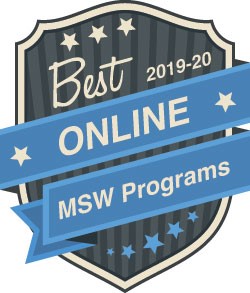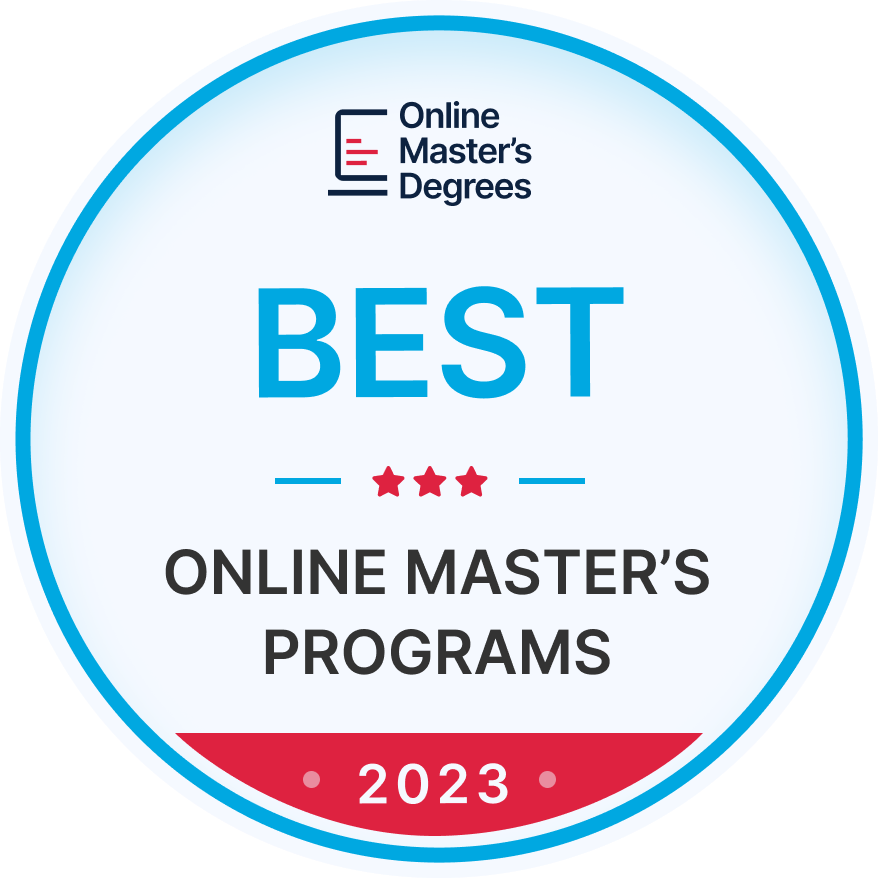MSW Online
The MSW online is an intensive 7-week module format, not the traditional semester format, giving students six start dates while still completing the program in approximately 2 years of full time study or 3-1/2- 4 years of part time study. The online program is asynchronous meaning coursework is done at your own pace with guided dates and deadlines. This program is year-round with 1-2 week breaks between modules. Students will enroll in 1 (part time) or 2 (full time) courses each module in a prescribed order set forth by the faculty.
The program is open to all US residents living in the United States. No international students can be accepted. International placements are not permitted, except if approved on US military bases.
It should be noted that enrolling in two online courses is the equivalent of a full-time campus course load. Those who are working 40 hours a week need to keep this in mind when scheduling. Students should plan to spend a minimum of 15 hours per week per class on coursework. Internships are completed in social service agencies in home areas (not online) during these 7-week modules in block placements (40 hours/week) or over four modules (16-18 hours/week). There are no night or weekend placements. Students who work full time will make arrangements to complete the internship while working. See the online link for more detailed information as well as the internship video on the field internship link that explains the two options available to complete the internship.
Cost is $599 per credit hour for in or out of state. Admission and program requirements are the same for the MSW Online and the Baton Rouge campus. The LSU School of Social Work is accredited by the Council on Social Work Education (CSWE) and has been offering graduate education since 1937. No academic credit is granted for work or life experiences.
Criminal Background: If a student has a criminal background, it is in the student’s best interest to disclose this information prior to beginning the program and prior to the field internship placement process. A criminal background may pose difficulties in securing a field placement for the student and/or may result in the inability to place the student. Students who have a criminal background should understand that some agencies may be precluded by law from accepting them in field placement. Additionally, some agencies are unwilling to supervise students having certain criminal charges. The field education team will make every effort possible to assist students in securing a field placement. However, if a placement cannot be accomplished for any reason, the student may not be able to complete the degree program. Students should also be aware that even if field placements are secured and a degree is awarded, certain criminal offenses may preclude them from obtaining employment as a social worker and that some states may refuse to license the applicant as a professional social worker. Students should seek counseling from the School of Social Work if questions arise regarding such matters.
Admissions
Admission Requirements
School of Social Work admission requirements for ALL programs are the same. The following requirements must be completed prior to admission to the Full time, Part time, Advanced Standing and MSW Online programs:
- A baccalaureate degree from an accredited college or university;
- Demonstration of a liberal arts undergraduate preparation through completion of at least 12 credit hours in the social and behavioral sciences (psychology, sociology, anthropology, human geography, economics, political science, curriculum & instruction, etc.), and at least 9 hours in the humanities (literature, languages, history, women’s studies, art or music history, philosophy, cultural and comparative studies, communication studies, etc.);
- “C” or better in an introductory statistics course in any undergraduate department; this course cannot be taken concurrently with MSW courses;
- A grade point average (GPA) of at least 3.00 on all undergraduate work or in the final 60 credit hours or at least 9 hours of any graduate work already completed with appropriate grades;
- Evidence that the applicant possesses the personal qualities and aptitudes essential for the social work profession;
- A genuine interest in people and emotional stability;
- Meeting minimum entrance requirements does not guarantee admission.
How to Apply
Application to the School of Social Work is the same for all campus and online programs. Applicants with missing application materials by the School of Social Work deadline will not be considered. A completed application is the LSU Graduate School application, fee payment, Social Work letter of intent, three letters of recommendations, resume, and receipt of official transcripts by the School of Social Work’s deadline dates. Note: Meeting minimum entrance requirements does not guarantee admission.
Applicants must submit the following:
- Graduate School Application and Fee
- Letter of Intent (instructions located within the Graduate School application portal)
- Current resume or vita
- One official copy of all transcripts from all universities attended. Transcripts may be mailed in sealed envelopes to Graduate School, 114 David Boyd Hall, Baton Rouge, LA 70803 or sent electronically from a university to [email protected]. All transcripts are required, whether or not credit was earned or is desired. Official transcripts of work taken at LSU are not required.
- Three letters of recommendation
- A total of three (3) recommendation forms are required for your admission file to be complete by the appropriate deadline. A letter of support is optional. These forms are located in the Graduate School application portal. Recommendations must be Academic (college instructors, internship supervisors) or Professional (Work/Volunteer) Reference. Family friends, clergy, therapist and high school teachers are not appropriate.
- It is strongly recommended that if an internship was part of the degree program and the internship has been completed at the time of application, a recommendation from the internship supervisor be included as the professional recommendation.
MSW Online Deadlines
August 26, 2024 Module application deadline—All SW materials, pre-reqs, and GS application materials
must be received.
October 21, 2024 Module begins
October 21, 2024 Module application deadline—All SW materials, pre-reqs, and GS application materials
must be received.
January 13, 2025 Module begins
January 13, 2025 Module application deadline—All SW materials, pre-reqs, and GS application materials
must be received.
March 17, 2025 Module begins
March 17, 2025 Module application deadline—All SW materials, pre-reqs, and GS application materials
must be received.
May 26, 2025 Module begins
May 26, 2025 Module application deadline—All SW materials, pre-reqs, and GS application materials
must be received.
July 7, 2025 Module begins
July 7, 2025 Module application deadline—All SW materials, pre-reqs, and GS application materials
must be received.
August 25, 2025 Module begins
August 25, 2025 Module application deadline—All SW materials, pre-reqs, and GS application materials
must be received.
October 20, 2025 Module begins
Sample Curriculum
January, March, August and October modules are 7 weeks long and students may enroll in a maximum of 6 hours. May and July modules are 5 weeks long and students may enroll in a maximum of 3 hours. Internships begin in January and August. Coursework progression and internship timing will vary from these sample curriculums depending on entry module, internship application deadline, and internship start date.
Approximately 2 years to complete or approximately 12 modules or less. Students enroll in 1 or 2 classes each module with 40-hour internship over two modules. Designed for a student whose sole focus is school. Little outside distractions or obligations.
Module 1
Generalist Required Course Generalist Required Course
Module 2
Generalist Required Course Generalist Required Course
Module 3
Generalist Required Course Generalist Internship I—40 hrs/week Required Course
Module 4
Generalist Required Course Generalist Internship II - 40 hrs/week Required Course
Module 5
Generalist Required Course Generalist Required Course
Module 6
Specialist Required Course SW Elective #1
Module 7
Specialist Required Course SW Elective #2
Module 8
Specialist Required Course Specialist Internship II—40 hrs/week Required Course
Module 9
Specialist Required Course Specialist Internship I - 40 hrs/week Required Course
Module 10
SW Elective #3
SW Elective #4
Approximately 2-2 ½ years to complete or approximately 12-16 modules. Students enroll in 1 or 2 classes each module and 2 full days internship/16-18 hours over four modules. Designed for a student who works and/or has other obligations in addition to work.
Cannot complete the 40 hour per week internship. Needs time to plan for the internship. A slower pace than the fast track.
Module 1
Generalist Required Course
Generalist Required Course
Module 2
Generalist Required Course
Generalist Required Course
Module 3
Generalist Required Course
Module 4
Generalist Required Course
Module 5
Generalist Required Course
Generalist Internship I—16-18 hrs/wk (120 hrs) 240 hours Required Course
Module 6
Generalist Required Course
Complete remaining 120 hours for Generalist Internship I--16-18 hrs/wk
Module 7
Generalist Internship II—16-18 hrs/wk (120 hrs) 240 hours Required Course
SW Elective #1
Module 8
Complete remaining 120 hours for Generalist Internship II--16-18hrs/wk
SW Elective #2
Module 9
Specialist Required Course
Module 10
Specialist Required Course
Module 11
Specialist Required Course
Specialist Internship I--16-18 hrs/wk (120 hrs) 240 hours
Module 12
Specialist Required Course
Complete remaining 120 hours for Specialist Internship I--16-18hrs/wk
Module 13
Specialist Internship II--16-18 hrs/wk (120 hrs) 240 hours
Elective #1
Module 14
Complete remaining 120 hours for Specialist Internship II--16-18hrs/wk
Elective #2
Module 15
Elective #3
Elective #4
Approximately 3-4 years to complete or 16 – 24 modules. Students enroll in 1 class per module and 2 full days internship/16-18 hours over four modules. Designed for a student who works and/or has other obligations. Does not want to enroll in 2 classes each module due to work, financial, and/or other obligations. Needs time to plan for the internship. Slower pace than the standard track.
Module 1
Generalist Required Course
Module 2
Generalist Required Course
Module 3
Generalist Required Course
Generalist Internship I—16-18 hrs/wk (120 hrs) 240 hours Required Course
Module 4
Generalist Required Course
Complete remaining 120 hours for Generalist Internship I--16-18 hrs/wk
Module 5
Generalist Required Course
Generalist Internship II—16-18 hrs/wk (120 hrs) 240 hours Required Course
Module 6
Complete remaining 120 hours for Generalist Internship II--16-18hrs/wk
Generalist Required Course
Module 7
Generalist Required Course
Module 8
Generalist Required Course
Module 9
Specialist Required Course
Module 10
Specialist Required Course
Module 11
Specialist Required Course
Module 12
Specialist Required Course
Module 13
Specialist Internship I—16-18 hrs/wk (120 hrs) 240 hours Required Course
SW Elective #1
Module 14
Complete remaining 120 hours for Specialist Internship I—16-18 hrs/wk
SW Elective #2
Module 15
Specialist Internship II—16-18 hrs/wk (120 hrs) 240 hours Required
SW Elective #3
Module 16
Complete remaining 120 hours for Specialist Internship II—16-18 hours/week
SW Elective #4
Advanced Standing Students have 27 hours waived toward the MSW degree.
Approximately one year or less to complete. Students enroll in 2 classes each module with 40-hour internship over two modules. Designed for a student whose sole focus is school. Little outside distractions or obligations.
Module 1
SW 7010 Differential Diagnosis (required generalist course)
Module 2
Specialist Required Course
SW Elective #1
Module 3
Specialist Required Course
SW Elective #2
Module 4
Specialist Required Course
SW Elective #3
Module 5
Specialist Required Course
Specialist Internship I—40 hrs/week Required Course
Module 6
Specialist Internship II—40 hrs/week Required Course
SW Elective #4
Advanced Standing Students have 27 hours waived toward the MSW degree.
Approximately 1- 1 ¼ years to complete. Students enroll in 1 or 2 classes each module and 2 full days internship/16-18 hours over four modules. Designed for a student who works and/or has other obligations in addition to work.
Cannot complete the 40 hour per week internship. Needs time to plan for the internship. A slower pace than the fast track.
Module 1
SW 7010 Differential Diagnosis (required generalist course)
Module 2
Specialist Required Course
SW Elective #1
Module 3
Specialist Required Course
Module 4
Specialist Required Course
Module 5
Specialist Required Course
Specialist Internship I—16-18 hrs/wk (120 hrs) 240 hours Required Course
Module 6
Complete remaining 120 hours for Specialist Internship I—16-18 hrs/wk
SW Elective #2
Module 7
Specialist Internship II—16-18 hrs/wk (120 hrs) 240 hours Required Course
SW Elective #3
Module 8
Complete remaining 120 hours for Specialist Internship II—16-18 hours/week
SW Elective #4
How to Obtain the MSW Degree
To obtain the MSW degree, students must:
- successfully complete 60 hours of study, following the prescribed course sequence including passing internship courses
- maintain an overall grade point average of 3.00, with no grade less than “C” in any course offered for the degree
- cannot be on probation
- no more than two C’s toward the MSW degree
Thesis Option: Students are encouraged to undertake a thesis, yet doing so is not required to graduate. A student choosing to write a thesis must begin working with a mentor at least a year before the student intends to graduate. Six total credit hours of SW 8000 are required for the thesis and replace six credit hours of electives; no more than six credit hours of SW 8000 can be used toward the MSW degree. Students should be aware that the LSU Graduate School requires students to defend their thesis in person. However, the thesis committee chair can petition the Graduate School to allow a student to defend their thesis remotely. Students should refer to the LSU General Catalog and discuss this with their committee chair.
Professional Licensing Requirements
(Updated 12/17/2024)
The LSU School of Social Work’s (SSW) MSW program is accredited by the Council on Social Work Education (CSWE), the only body recognized by the Council for Higher Education Accreditation to accredit social work education programs in the United States. The MSW program meets CSWE’s curriculum and field education standards for the MSW degree.
The following states have additional entry-level licensure requirements that the SSW provides. However, applicants from these states must notify the SSW of their location upon admission so that a program of study can be created to include these licensure requirements. Likewise, current students who relocate to these states during the program, or who intend to relocate to these states following graduation, must notify the SSW immediately so their program of study can be adjusted, if possible. Applicants and students from these states who fail to notify the SSW in a timely manner may miss the coursework and/or field experience needed to meet their state’s licensure requirements. It is ultimately the applicant’s/student’s responsibility to ensure that their coursework and field experiences meet the professional licensure requirements of the state in which they intend to seek licensure.
- Florida:
clinical field placement during the specialized (i.e., second) year - Michigan:
training on identifying victims of human trafficking - Missouri:
2 hours of training on suicide assessment, referral, treatment, and management - Nebraska:
300 clock hours of direct client contact under supervision - New Mexico:
3-hour seminar or course on New Mexico cultures - New York:
2-hour training or coursework on the identification and reporting of child abuse - Pennsylvania:
3-hour training on child abuse recognition and reporting - Virginia:
600-hour clinical practicum that focuses on diagnostic, prevention, and treatment services
California residents: Please note that California has additional advanced (LCSW) licensure requirements that the LSU School of Social Work does not fully provide. Contact the California Board of Behavioral Sciences for a complete list of LCSW coursework requirements.
Find your state’s licensing board
All applicants and students are encouraged to refer to their state licensing board for more information about current licensure requirements. State licensing boards can be found by visiting the Association of Social Work Boards.
More information and filing a complaint
For information on LSU’s compliance with federal regulations, please visit the Office of Academic Affairs’ Licensure Requirements website.
For information on the institutional process for filing distance education appeals as well as contact information for each state's SARA (State Authorization Reciprocity Agreement) portal, please visit LSU’s Complaint Procedures website.


